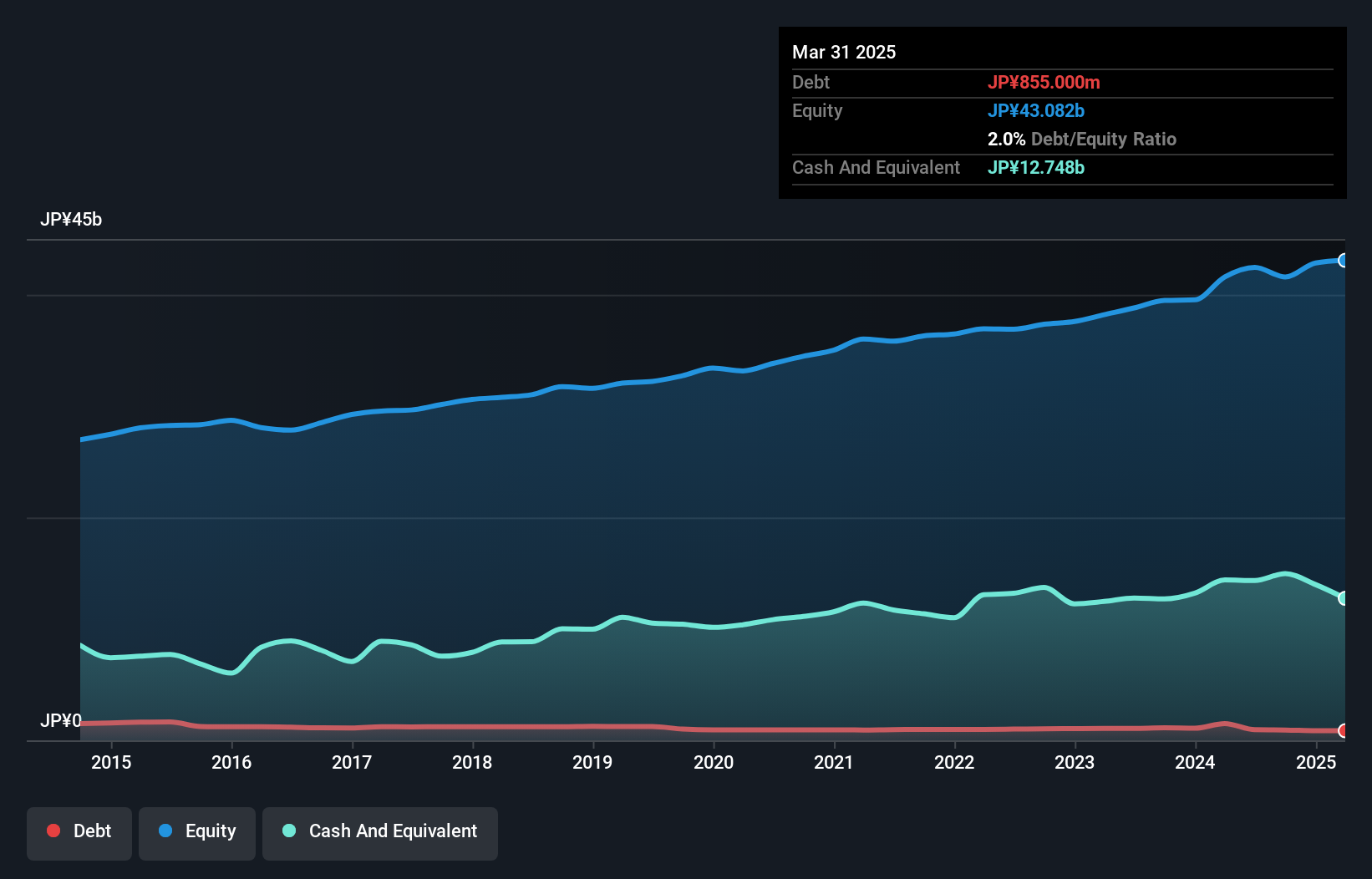
Legendary fund manager Li Lu (who Charlie Munger backed) once said, 'The biggest investment risk is not the volatility of prices, but whether you will suffer a permanent loss of capital.' It's only natural to consider a company's balance sheet when you examine how risky it is, since debt is often involved when a business collapses. Importantly, Nippon Hume Corporation (TSE:5262) does carry debt. But should shareholders be worried about its use of debt?
When Is Debt Dangerous?
Debt is a tool to help businesses grow, but if a business is incapable of paying off its lenders, then it exists at their mercy. Part and parcel of capitalism is the process of 'creative destruction' where failed businesses are mercilessly liquidated by their bankers. However, a more frequent (but still costly) occurrence is where a company must issue shares at bargain-basement prices, permanently diluting shareholders, just to shore up its balance sheet. Having said that, the most common situation is where a company manages its debt reasonably well - and to its own advantage. The first step when considering a company's debt levels is to consider its cash and debt together.
How Much Debt Does Nippon Hume Carry?
As you can see below, Nippon Hume had JP¥855.0m of debt at March 2025, down from JP¥1.51b a year prior. But it also has JP¥12.7b in cash to offset that, meaning it has JP¥11.9b net cash.

How Strong Is Nippon Hume's Balance Sheet?
According to the last reported balance sheet, Nippon Hume had liabilities of JP¥9.66b due within 12 months, and liabilities of JP¥4.50b due beyond 12 months. Offsetting these obligations, it had cash of JP¥12.7b as well as receivables valued at JP¥9.74b due within 12 months. So it can boast JP¥8.33b more liquid assets than total liabilities.
It's good to see that Nippon Hume has plenty of liquidity on its balance sheet, suggesting conservative management of liabilities. Because it has plenty of assets, it is unlikely to have trouble with its lenders. Simply put, the fact that Nippon Hume has more cash than debt is arguably a good indication that it can manage its debt safely.
Check out our latest analysis for Nippon Hume
In addition to that, we're happy to report that Nippon Hume has boosted its EBIT by 43%, thus reducing the spectre of future debt repayments. The balance sheet is clearly the area to focus on when you are analysing debt. But it is future earnings, more than anything, that will determine Nippon Hume's ability to maintain a healthy balance sheet going forward. So if you want to see what the professionals think, you might find this free report on analyst profit forecasts to be interesting.
Finally, a business needs free cash flow to pay off debt; accounting profits just don't cut it. While Nippon Hume has net cash on its balance sheet, it's still worth taking a look at its ability to convert earnings before interest and tax (EBIT) to free cash flow, to help us understand how quickly it is building (or eroding) that cash balance. Looking at the most recent three years, Nippon Hume recorded free cash flow of 31% of its EBIT, which is weaker than we'd expect. That weak cash conversion makes it more difficult to handle indebtedness.
Summing Up
While we empathize with investors who find debt concerning, you should keep in mind that Nippon Hume has net cash of JP¥11.9b, as well as more liquid assets than liabilities. And it impressed us with its EBIT growth of 43% over the last year. So is Nippon Hume's debt a risk? It doesn't seem so to us. When analysing debt levels, the balance sheet is the obvious place to start. But ultimately, every company can contain risks that exist outside of the balance sheet. Be aware that Nippon Hume is showing 3 warning signs in our investment analysis , and 2 of those are a bit unpleasant...
Of course, if you're the type of investor who prefers buying stocks without the burden of debt, then don't hesitate to discover our exclusive list of net cash growth stocks, today.
Valuation is complex, but we're here to simplify it.
Discover if Nippon Hume might be undervalued or overvalued with our detailed analysis, featuring fair value estimates, potential risks, dividends, insider trades, and its financial condition.
Access Free AnalysisHave feedback on this article? Concerned about the content? Get in touch with us directly. Alternatively, email editorial-team (at) simplywallst.com.
This article by Simply Wall St is general in nature. We provide commentary based on historical data and analyst forecasts only using an unbiased methodology and our articles are not intended to be financial advice. It does not constitute a recommendation to buy or sell any stock, and does not take account of your objectives, or your financial situation. We aim to bring you long-term focused analysis driven by fundamental data. Note that our analysis may not factor in the latest price-sensitive company announcements or qualitative material. Simply Wall St has no position in any stocks mentioned.
About TSE:5262
Flawless balance sheet with proven track record.
Market Insights
Community Narratives



